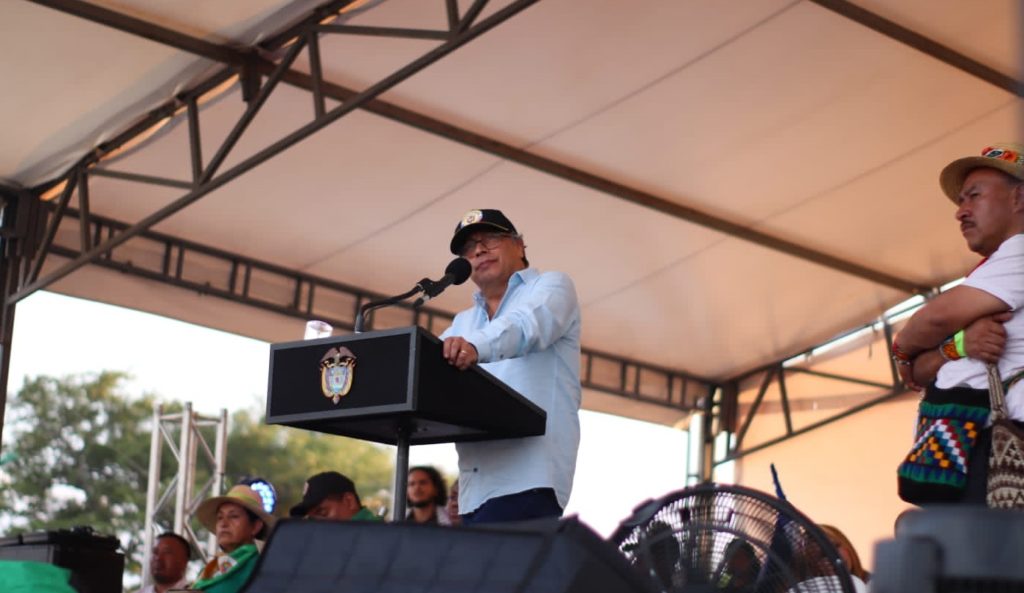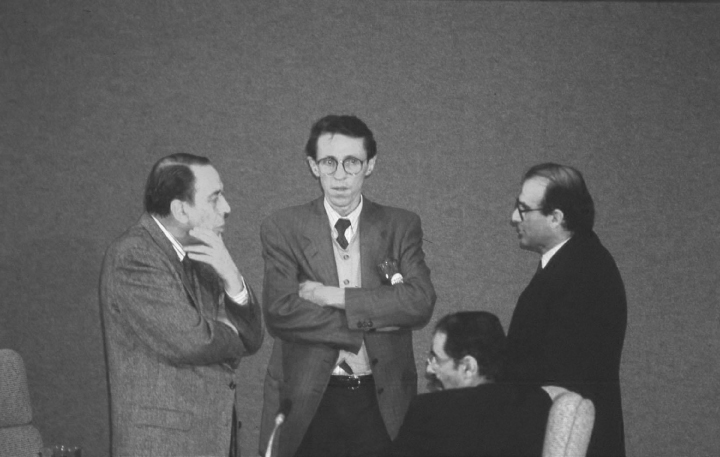
The President of Colombia, Gustavo Petro, has raised the possibility of making changes in Colombia’s constitution by convening a National Constituent Assembly, if his proposals for social reforms fail to be approved by the opposition-controlled Congress.
“If the institutions we have today in Colombia are not capable of living up to the social reforms that the people decreed through their vote… then Colombia has to go to a National Constituent Assembly,” he said to a gathering of his Indigenous supporters in the city of Cali.
The announcement has unleashed a great controversy in Colombian politics, mainly among conservative opposition parties, but also in progressive sectors. Both have discredited the idea, denying the need for such a move amid accusations of a tendency towards authoritarianism in the head of state.
National Constituent Assembly
President Petro’s proposal comes just when two of his most important legislative reforms, in the fields of Health and Pensions, are running aground in Congress.
A National Constituent Assembly is an extraordinary option offered as one of the legal ways to reform the Constitution. In Colombia it was used for the first time to reform the Magna Carta of 1886, giving rise to the current text of 1991, which governs the country.
This is established in Article 374, while Article 376 states that, thanks to the law approved by a majority of the members of both Houses (Colombia has a bicameral system that forms the legislative power), the Congress may empower the people to decide in a vote whether to convene an Assembly. “It shall be understood that the people convene the Assembly, if so approved by at least one third of the members of the electoral census”.
Taking into account that the census, as of October 2023, was 39 million people, it would be necessary for at least13 million citizens to vote in favor of this proposition. In fact, during the peace talks that the country held with the extinct FARC guerrilla, between 2012 and 2016, the armed group proposed a Constituent Assembly, but the idea was rejected by the government of President Juan Manuel Santos.
Commitment not to call for a Constituent Assembly
It should be noted that during his electoral campaign, Gustavo Petro committed publicly and under a notarized document not to call for a National Constituent Assembly, so some have seen in this Friday’s statement an evident contradiction.
One of those who has recalled this commitment is the senator of the conservative Democratic Center, Miguel Uribe. The parliamentarian has uploaded a photograph where, with other progressive politicians, the current president appears with the written commitment that he now seems to contradict. Uribe, in addition, has recalled the words of Venezuelan opposition politician, Leopoldo Lopez, pointing out that “the destruction of Venezuela began with Chavez’s Constituent Assembly.”
Political reactions of rejection
Likewise, former Colombian president and leader of the same Democratic Center, Alvaro Uribe (2002-2010), has reacted strongly, opposing Gustavo Petro’s proposal head-on. “Constitutional instability, legal insecurity, prevent the establishment of solid roots of progress. Adjustments, whether Constitutional, legal, administrative, which are the lifeblood of democracy, cannot be replaced by the ultimatum of imposition or destruction”, wrote the conservative former president on social networks.
The questioning has come from many other sectors. The former mayor of Bogota and member of the Green Alliance, Claudia Lopez, has also expressed her opposition. “In democracy we will protect the 91 Constitution, which was the result of a national and citizen agreement. Petro does not have majorities to approve an ordinary law, much less to call a Constituent Assembly. He knows it, but he says it to sow chaos, division and polarization, which are the tools with which he will maneuver during his remaining term”, stated Lopez, one of the possible presidential candidates for 2026.
Even in political circles close to President Petro, voices have been raised against his proposal. “A new National Constituent Assembly does not seem necessary at this time”, said Antonio Navarro Wolff, one of the three presidents of the National Constituent Assembly that gave rise to the current Constitution. Navarro Wolff was in fact a member of the M19 guerrilla, where he was Gustavo Petro’s partner, in the 80s.
Need for broad consensus
The convocation of a National Constituent Assembly is a legal option, provided for in the Colombian Constitution. However, the political commotion raised by the presidential proposal suggests that a situation of conflict would open up in the country in the event of moving in that direction.
A far-reaching change in the constitutional text implies a new political framework, with different rules of the game. Such a possibility requires a great debate, conducted calmly and with a wide and plural support in order to ensure its approval and its social and political representativeness.
It is not a common instrument, since it requires a large consensus and usually occurs after a period of instability or when the need to update the rules of constitutional coexistence is evident. This was the case in 1991, when the current Magna Carta replaced the Constitution in force since the end of the 19th century.
Colombia was also experiencing the demobilization of the guerrilla group M19, which surrendered its weapons in 1990 and actively participated in the drafting of the new text. The Constitution resulting from those negotiations is today one of the most advanced and progressive in Latin America.
So far, the only voices calling for a far-reaching reform of the text have come from sectors of the left, demobilized FARC members being the first. Now reform is suggested by President Petro himself, who must act with caution and democratic firmness at a time when the country does not seem to support a major change in the legislative model.

See all the latest news from Colombia and the world at ColombiaOne.com. Contact our newsroom to report an update or send your story, photos and videos. Follow Colombia One on Google News, Facebook, Instagram, and subscribe here to our newsletter.

